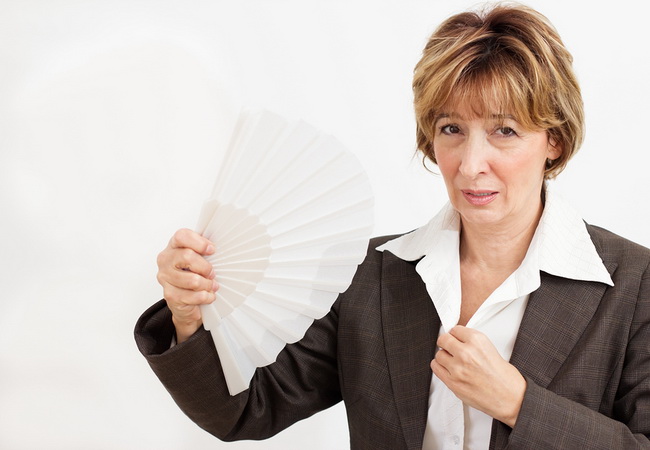- Make It Yourself Lavender Heart-Shaped Bath Bombs!
- 20 Things You Never Knew About “Down There”
- 12 Best Foods For Those Suffering From Arthritis Pain
- 12 Personal Hygiene Mistakes Almost Everyone Makes (Mom Never Told You About #4!)
- 15 Medicinal Plants And Herbs From The Cherokee People
- 12 Mind-Blowing Benefits Of Drinking Coconut Water During Pregnancy
- 12 Outstanding Winter Foods That Won’t Fatten You Up Like A Christmas Turkey
Top 5 Menopause Issues and How to Fix Them

Photo credit: bigstock
3. Your moods swings are like a rollercoaster!
This is really irritating, not only to you, but to your family and friends as well. First, for one month, try making a note of when you feel the most out of control and exactly what it is that is bothering you. Are you overly sensitive, crying all the time? Do you fly off the handle? Are you depressed or having anxiety attacks? Do you feel this way most of the time, or only certain days of the month?
Medications that might help you vary greatly and it will help you and your doctor if you know when and what feelings you are having. If you are feeling anxiety most of the time, you do not need something like Prozac, but perhaps just some short term therapy with Ativan.
However, if you are mainly feeling anger or irritability, you might find that yoga or dance classes help to relieve stress and anger. Read more about yoga poses to relieve stress.
If you are having those middle of the night my-mind-won’t-shut-off insomnia attacks, you can try making chamomile tea or valerian supplements.
Sometimes, anti-depressants are a godsend, but they do come with side effects that you should avoid if at all possible. If your symptoms are so severe that they are interfering with your life, and you and your doctor decide that anti-depressants are the answer, try Celexa. Research shows that not only does Celexa work better for women than for men; they also reduced hot flashes by as much as 50 percent! (Nice little bonus!) Try the minimum dosage first, sometimes; all your body needs is just a little help.
4. Hot flashes and night sweats
This is probably the most common, not to mention annoying, symptoms women complain about. They’re related but they aren’t the same thing. Some women have one but not the other, and that’s completely normal.
The reason for these symptoms is that when your natural hormone regulation system is overwhelmed, it appears to get confused and sends out signals to your body to dispel heat. Your body is simply confusing it’s signals and is overreacting to this. You can sometimes prevent this by avoiding things that seem to trigger these hot flashes and night sweats.
Take a look at the common things that tend to set off those hot flashes:
- Excessive sugar
- Caffeine
- Alcohol
- Saunas, Jacuzzis, and hot tubs
- Sex
- Spicy foods or hot sauces
- Intense exercise
- Acidic foods ( like tomatoes)
- Anger
- Stress or anxiety
There are two other things that can make a difference and that is to stop smoking, if you are a smoker, and losing weight. Both of these things increase hot flashes and night sweats immensely. Also, if you are a naturally nervous, anxious person, you will also suffer from more frequent bouts of hot flashes.
Try keeping a pitcher of ice water by your bed at night. If you wake up with those night sweats, drink a glass of ice water. Try dressing in layers, also, and when you think you feel a hot flash coming on, you can remove a few layers of clothing. Be sure you are getting sufficient amounts of vitamin D, magnesium, and calcium, as these have been known to reduce hot flashes. Sleep in a cool room with a fan running.
If none of these things help, and your hot flashes are intense, you might want to consider HRT.
Continue to Page 3





























